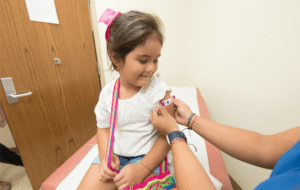The Coronavirus pandemic has caused a widening range of family law disputes, with parents being unable to agree if their child should receive the COVID-19 vaccinations. Unless a court order has been made stating otherwise, both parents of a child are presumed to have equal parental responsibility, including the decision on whether their child should be vaccinated.
What happens if the parents cannot agree?
Parents are encouraged to try to reach an agreement on their own as to whether their child should be vaccinated. However, if they cannot agree on their own, they will generally be required to attend Family Dispute Resolution to attempt to reach a decision. If this is not successful, an application will need to be made to the Family Court for judicial determination.
According to section 65 of the Family Law Act 1975, a court may make any parenting order it considers appropriate for that case. However, the court must make their order in the best interests of the child, which will likely be that the child is immunised following the National Immunisation Schedule in the absence of any specific scientific medical advice that a child should not receive a vaccination.

Recent court case
In the recent case of Makinen & Taube[1], the Federal Circuit Court of Australia determined that the decision regarding whether the children should be vaccinated would be decided in the children’s best interest pursuant to the Family Law Act 1975 (Cth). In this case, the parents were separated, and the mother was against all vaccinations given to her children. On the other hand, the father was supportive of his children receiving any vaccinations recommended by the GP. The court determined that children’s vaccinations involve many variables and require medical advice from a GP. The court also considered that they must give greater weight to the protection of a child from physical or psychological harm, and it is preferable to make the order least likely to lead to further proceedings.
As a result, the father was allowed the parental responsibility regarding decisions relating to his children’s vaccinations as he was likely to accept expert medical advice based on commonly accepted professional medical advice, whereas the mother was not a GP and relied upon materials that did not support a general contention that children should not be vaccinated. The mother was restrained from giving the children opinions and advice contrary to the recommendations given by their GP.

Nicola Maltman – Law Clerk – Matthies Lawyers
Should you have any queries in regard to family law matters, please contact Matthies Lawyers for an obligation free consultation or call +61 3 8692 2517 today.
Disclaimer: This article contains general information only and is not intended to be a substitute for obtaining legal advice.
[1] Makinen & Taube [2021] FCCA 1878.
